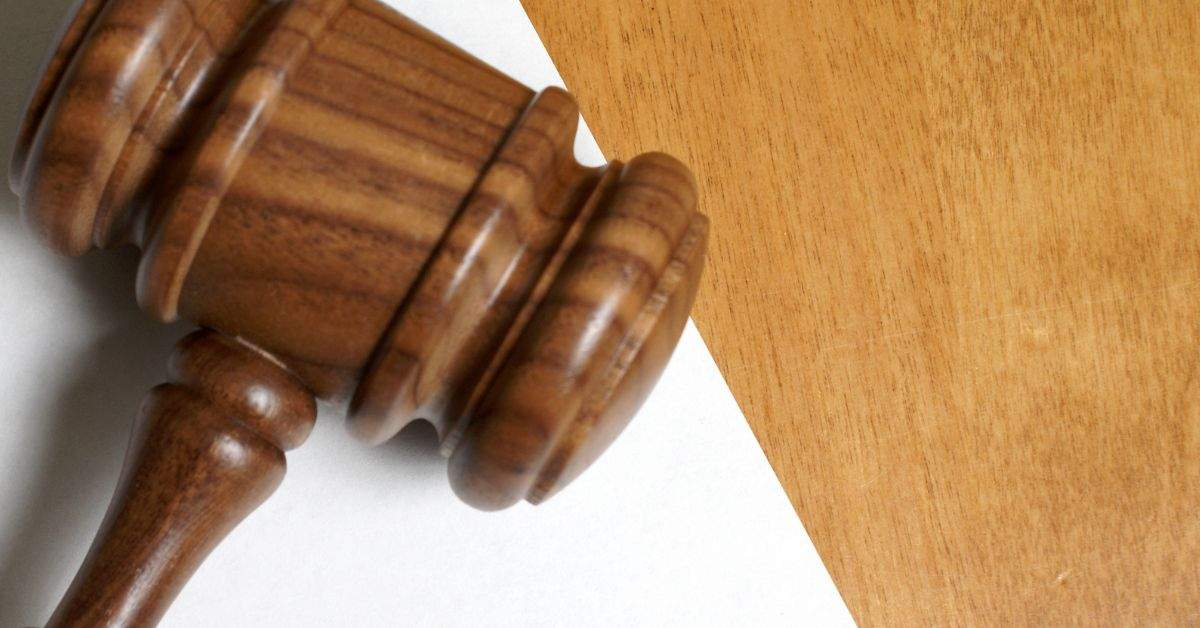A breach of fiduciary duty in California is serious business. A lawyer’s fiduciary duty to her clients is the bedrock of the practice.
Of course, this broad duty encompasses many individual ethical mandates, among them the duty to act in the best interests of the client, the duty to protect the client’s rights, the duty to maintain a high level of competence, confidentiality, diligence, and loyalty, and the duty to avoid any conflicts of interest that could compromise the attorney-client relationship.
A breach of fiduciary duty happens when a lawyer fails to fulfill one or more of these responsibilities. Importantly, these types of failures can lead to severe consequences, including potential legal malpractice claims.
Fortunately, in California, there are a plethora of jury instructions, statutes, state bar rules, and case law precedents that serve as guidance on exactly what the fiduciary duty is and, perhaps more importantly, how it can be breached (or how a breach can be avoided, depending on how you look at it).
Within this article, we’ll take a look at the sources of California law on attorney fiduciary duties and then provide a breakdown of some of the most common mistakes that can lead to those dreaded breach claims.
Finally, we’ll explore some of the various mechanisms for redress that clients have should they believe you’ve breached the fiduciary duty owed to them.
The rules and regulations
In order to understand how a breach of fiduciary duty claim can arise, it’s best to start with a review of the California Jury Instructions on the topic – because they lay out precisely what a client will have to prove in order to prevail in a case against you. Instruction 4106 of the Judicial Council of California Civil Jury Instructions (“CACI”), lays out the necessary elements of a breach of fiduciary duty claim against a lawyer:
Plaintiff claims that [he/she/nonbinary pronoun/it] was harmed
because [name of defendant] breached an attorney’s duty [describe duty,
e.g., “not to represent clients with conflicting interests”]. To establish this
claim, [name of plaintiff] must prove all of the following:
- That [name of defendant] breached the duty of an attorney [describe duty];
- That [name of plaintiff] was harmed; and
- That [name of defendant]’s conduct was a substantial factor in causing [name of plaintiff]’s harm.
That seems fairly cut and dried. The plaintiff has to show that some duty was owed, that it was breached, and that the client was harmed. Tort law, 101, right? Now let’s dig a little deeper to look at some of the statutes and rules that describe the sub-duties owed to the client.
Under California Business and Professions Code, section 6068, for example, lawyers are obligated to “maintain inviolate the confidence, and at every peril to himself or herself to preserve the secrets, of his or her client.” In plain English, if an attorney discloses privileged or confidential information without the client’s consent, it constitutes a breach of fiduciary duty. But wait, there’s more.
The California Rules of Professional Conduct set forth most of the other duties that, if breached, can serve as the basis for a breach of fiduciary duty claim. They include:
- Rule 1.1: The duty of competence;
- Rule 1.3: The duty of diligence;
- Rule 1.4: The duty to communicate with clients;
- Rule 1.6: The duty of confidentiality;
- Rule 1.7: The duty to avoid conflicts of interest;
- Rule 1.9: Duties owed to former clients;
- Rule 1.15: The duty of safekeeping of client funds and property; and
- Rule 1.18: The duties owed to a prospective client
Of course, anyone reading this post is already familiar with those rules but if you need a refresher on how they play out in real life, take a look at the case citations listed in the annotations to each rule (see above hyperlink). We’ll also provide a brief overview of some of the seminal cases in this area below.
Pertinent case law
The existence of a fiduciary relationship is a question of law. Whether an attorney has breached that fiduciary duty is a question of fact. David Welch Co. v. Erskine & Tulley (1988). That means, of course, that while the judge will determine whether you had a fiduciary relationship with the plaintiff, the jury will decide whether you breached that duty, based on the facts presented in the case.
Note, however, that in most cases, the existence of a fiduciary relationship will not be difficult for the judge to find. In Neel v. Magana, Olney, Levy, Cathcart & Gelfand (1971) the California Supreme Court recognized that “[t]he relation between attorney and client is a fiduciary relation of the very highest character.”
Thus, unless you have a solid argument that the person suing you for breach of fiduciary duty was not, in fact, your client, you’re probably going to end up presenting a factual case to the jury.
One other note before we move onto the types of factual situations that might constitute a breach – In the case of Oasis West Realty, LLC v. Goldman (2011), the Supreme Court of California opined on the type of damages required to sustain a breach of fiduciary duty claim against a lawyer.
Ultimately, that Court held that an attorney can be held liable for breach of fiduciary duty even when the only damages caused were the attorney fees the former client had to pay in order to pursue the breach claim.
In other words, just because the plaintiff suffered no financial losses prior to hiring another attorney, the breach of fiduciary duty claim is still viable. So, don’t fall into the temptation of believing you’re out of the woods just because something you’re accused of doing did not cause the client financial ruin.
Actions that can be considered a breach of fiduciary duty
By now, you can see that the biggest issue in any breach of fiduciary duty case is going to be the factual circumstances — did your actions constitute a breach of one or more of your sub-duties to the client? Here are some of the most common factual scenarios in that regard:
Conflicts of interest
If an attorney represents a client in a matter where the attorney’s interests or another client’s interests are adverse to the client’s, this can amount to a breach of fiduciary duty.
In Flatt v. Superior Court (1994), for example, the court held that when an attorney simply had access to confidential information in the course of the one representation (relevant, by definition, to the second representation), he was necessarily disqualified from representing the second client. Moreover, that disqualification extended vicariously to his entire firm.
Failure to communicate
In Oasis West Realty, LLC v. Goldman (2011), among other things, an attorney failed to communicate to a former client that he was actively campaigning against a real estate project that was the subject of his former representation.
This failure of communication, along with obvious breaches of the duty of loyalty, was enough to sustain a breach of fiduciary duty claim.
Misappropriation of client funds
In David Welch Co. v. Erskine & Tulley (1988) a law firm was entrusted with funds to be used to pay off an encumbrance on real property. The law firm disbursed some of the funds for its fees without proper authorization or agreement with the client.
The appellate court held that the law firm’s action constituted a breach of fiduciary duty. The court emphasized that a lawyer’s misappropriation or misuse of client funds, even if done with the belief of entitlement to the funds, is a severe breach of trust and is actionable.
Violation of confidentiality
When it comes to the duty of confidentiality, one of the oldest cases remains one of the best illustrations of the breach of fiduciary duty. Specifically, in Wutchumna Water Co. v. Bailey (1932), the attorney had previously represented Wutchumna Water Co. in various legal matters.
After terminating his relationship with the company, the attorney began representing parties adverse to the company, using confidential information he had obtained during his prior representation of Wutchumna.
Under those facts, the California Supreme Court easily held that an attorney’s use of a former client’s confidential information against the former client in subsequent representation constitutes a breach of fiduciary duty.
So, now that you have an idea of what fiduciary duty breaches look like in action, let’s take a quick look at a client’s various avenues of recourse.
Legal recourse for clients
The State of California takes breaches very seriously. A lawyer’s breach of fiduciary duties to a client can lead to severe penalties, including professional sanctions, disbarment, and even criminal charges.
Here are the top ways these remedies are pursued:
Malpractice lawsuits
When clients suffer damages (including fees paid to a subsequent attorney) as a result of their attorney’s breach of fiduciary duty, they can file a malpractice lawsuit against the attorney.
To prevail in a legal malpractice case in California, a client typically must prove the exact same elements that appear in CACI instruction 4061.
State Bar complaints
Clients can also file a complaint with the California State Bar. The State Bar investigates allegations of attorney misconduct and has the authority to impose disciplinary actions.
While this does not directly provide compensation to the client, it is a crucial step in ensuring that attorneys are held accountable for their actions.
Arbitration
In some instances, fee disputes between attorneys and clients or disputes about the quality of legal services provided may be resolved through arbitration. The California State Bar offers a Mandatory Fee Arbitration (MFA) program to resolve such disputes.
It’s worth noting that while these consequences and legal recourse options are potent, they are also considered extreme.
Legal ethics and professional responsibility are taken seriously in California, and there are numerous measures in place to prevent breaches of fiduciary duty. Most attorneys vehemently adhere to their fiduciary duties, understanding the significant professional and legal implications of breaching them.
While we’re sure you and your firm are among them, it never hurts to be armed with the knowledge of what could happen.
Conclusion
The fiduciary duty lawyers owe their clients in California is a crucial aspect of legal practice, encompassing obligations like client interests, confidentiality, competence, and more.
Breaching this duty can result in severe consequences, from legal malpractice claims to disbarment. Understanding California’s legal sources and regulations governing attorney-client relationships is crucial.
The California Jury Instructions lay out the elements for proving a breach of fiduciary duty claim against an attorney, necessitating proof of breach, harm, and causation.
Exploring scenarios like conflicts of interest, communication failures, misappropriation of funds, and confidentiality breaches illustrates how breaches occur. Clients can seek redress through malpractice suits, State Bar complaints, or arbitration.
Upholding fiduciary duty is both a legal requirement and moral obligation, preserving trust and integrity in the legal profession. By adhering to these ethical standards, attorneys offer optimal service while clients rest assured their rights are safeguarded.








